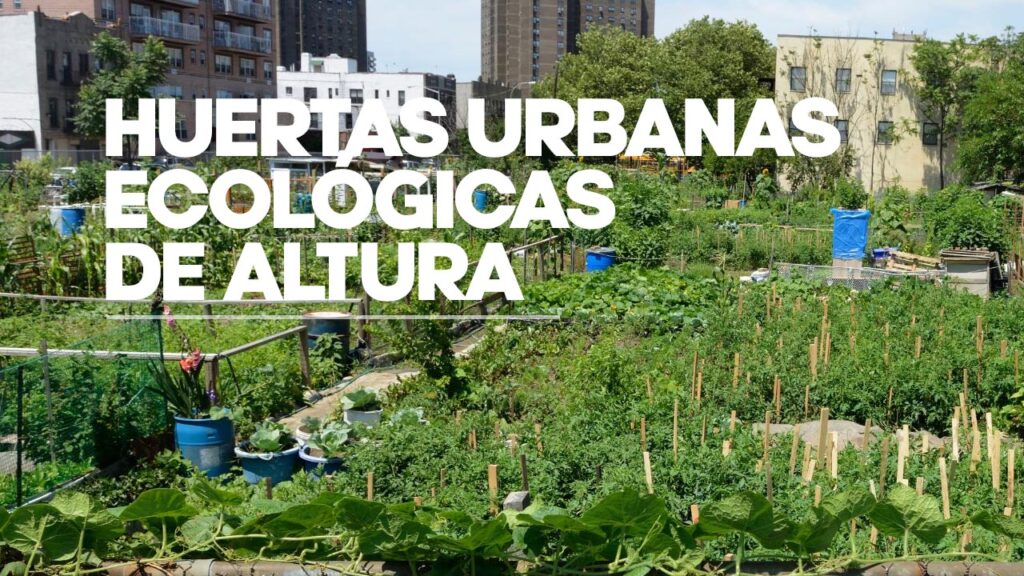Urban Eco-Friendly Gardens: The Future of City Farming
For most city dwellers, visiting a farm requires a trip out to the countryside. However, in more and more of the world’s capital cities, farms are just an elevator ride away, located just a few floors up. In cities like Singapore, Amsterdam, Hong Kong, Tokyo, Montreal, and several U.S. cities, farms are now being built on top of multi-story buildings.
Steven Peck, founder and president of Green Roofs for Healthy Cities, says that as fossil fuels become more expensive and urban populations continue to grow, urban farming will help feed the population without increasing transportation costs or pollution.
That’s why one of the fastest-growing movements is the creation of eco-friendly urban gardens. These gardens encourage the use of organic farming techniques, avoiding pesticides, and creating ecosystems that thrive on crop diversity, crop rotation, and the use of organic fertilizers. At the same time, they create spaces where families, neighbors, or like-minded groups can not only harvest fresh produce but also offer educational and restorative benefits. These spaces help strengthen community bonds, foster teamwork, boost self-esteem, and promote healthy eating habits. The goal is to create a continuous production system where work and knowledge are shared year-round, yielding fresh vegetables, fruits, and herbs for daily consumption.
Thanks to these new movements and mindsets, we now have access to certain “eco-certified” plants that ensure they are grown without synthetic fertilizers or pesticides—though their current purpose is mainly for urban gardens.
One of the most powerful, exciting, and surprising projects that combines all these values and characteristics (you’re going to be amazed!) is an organic farm on the rooftop of a six-story building from 1919 in none other than New York City!
Brooklyn Grange is an oasis of vegetables and organic production in the heart of a concrete jungle, where they grow vegetables to sell to local individuals and businesses. Their goal is to improve access to quality food, connect city dwellers with farming and food production, and make urban farming a viable and sustainable business.
Although it operates as a private business, Brooklyn Grange is community-oriented and open to the public. School groups, families, and volunteers are invited to visit, participate, and learn. It’s a green space that contributes to the overall health and quality of life in the community, bringing people together through green businesses and great food.
After a successful first harvest in 2010, and the sale of seasonal products throughout the spring, the urban farmers expanded their operations. They continued producing organic products, including a wide variety of juicy tomatoes, peppers, fennel, lettuce, chard, kale, beans, and delicious root vegetables like beets, carrots, and radishes, along with plenty of aromatic herbs.
The project is possible thanks to the passion for the “farm-to-table” philosophy shared by a group of organic restaurants, a team of architects from Bromley Caldari (a company dedicated to the sustainable renovation and reuse of commercial spaces), and a battalion of volunteers who enjoy this “healthy” work in their free time. Their goal is to prove that urban farming is a viable business and that such initiatives contribute to a sustainable economy and improve city health. The harvest is available for sale every season, so any New Yorker can benefit from it.
Due to its great success, Brooklyn Grange has expanded to a rooftop at the Brooklyn Navy Yard and even opened a commercial beekeeping operation, which includes an “Urban Beekeeping Training” program to teach aspiring beekeepers the art of urban apiculture.
“There’s nothing more rewarding than sitting down at the end of a hard day’s work with your hands in the soil, watching the sunset over a healthy, productive farm, and enjoying some freshly cut veggies as a team,” says Anastasia Cole Plakias, Vice President and Co-Founder of Brooklyn Grange.
To give you an idea of how significant these farms have become, they’ve already helped the U.S. government grow genetically modified plants in Texas for use in vaccines. They have also been used to help residents around Fukushima, Japan, find ways to grow food again after much of their agricultural land was lost due to radiation following the 2011 tsunami.
We love hearing day after day about how the green consciousness, sustainable development, and the desire for our own edible green spaces in the city continue to grow.
These are green ideas… and they’re spreading!!!
Credits: ideasverdes.es
https://www.ideasverdes.es/huertos-urbanos-ecologicos-de-altura/?fbclid=IwAR1xXEKyaog1sQKOy0G2COm6mwOk3feG7i7MK-QwjbocWIGKA1BKyXyTzFU

